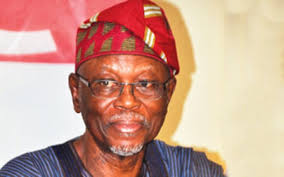The Nigerian government is taking bold steps to combat the nation’s growing cancer crisis with the planned commissioning of three state-of-the-art cancer treatment centers by May 2025. This was revealed by the Coordinating Minister of Health and Social Welfare, Prof. Muhammad Pate, during an interview on Channels Television. He noted that the initiative is part of a larger strategy to strengthen the country’s tertiary healthcare system.
The cancer centers are among six major cancer infrastructure projects approved by President Bola Tinubu in 2024. Prof. Pate highlighted that these facilities will be equipped with cutting-edge technology, including linear accelerators, brachytherapy, and advanced diagnostic tools. These upgrades are expected to provide high-quality cancer care within Nigeria and significantly reduce the need for patients to seek treatment abroad.
In addition to the treatment centers, the federal government has embarked on the development of 10 cancer diagnostic centers across the country. These centers aim to improve early detection and intervention, which are critical in reducing the high mortality rates associated with the disease. Prof. Pate stressed that the ongoing investment in diagnostic capabilities and infrastructure upgrades is part of a holistic approach to healthcare reform.
Over the past year, 201 tertiary hospitals across the country have also received infrastructural upgrades and advanced medical equipment, including Magnetic Resonance Imaging (MRI) and Computed Tomography (CT) scans. The government’s efforts have extended to human resource development, with plans to enhance training for medical personnel to manage the increased capacity of these facilities.
Cancer remains a significant public health challenge in Nigeria, with over 120,000 new cases reported annually and thousands of deaths. Breast cancer leads the statistics, followed by prostate, cervical, and colorectal cancers. The introduction of these facilities is expected to provide much-needed relief to patients while advancing the nation’s fight against the disease.
Prof. Pate emphasized that this expansion of tertiary healthcare infrastructure is critical to meeting the needs of Nigeria’s growing population. He added that the government’s commitment to improving healthcare delivery would not only address cancer treatment but also strengthen the overall healthcare system, ensuring better outcomes for patients nationwide.





































